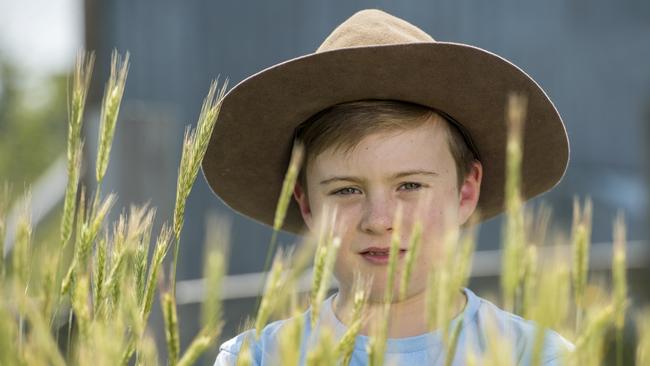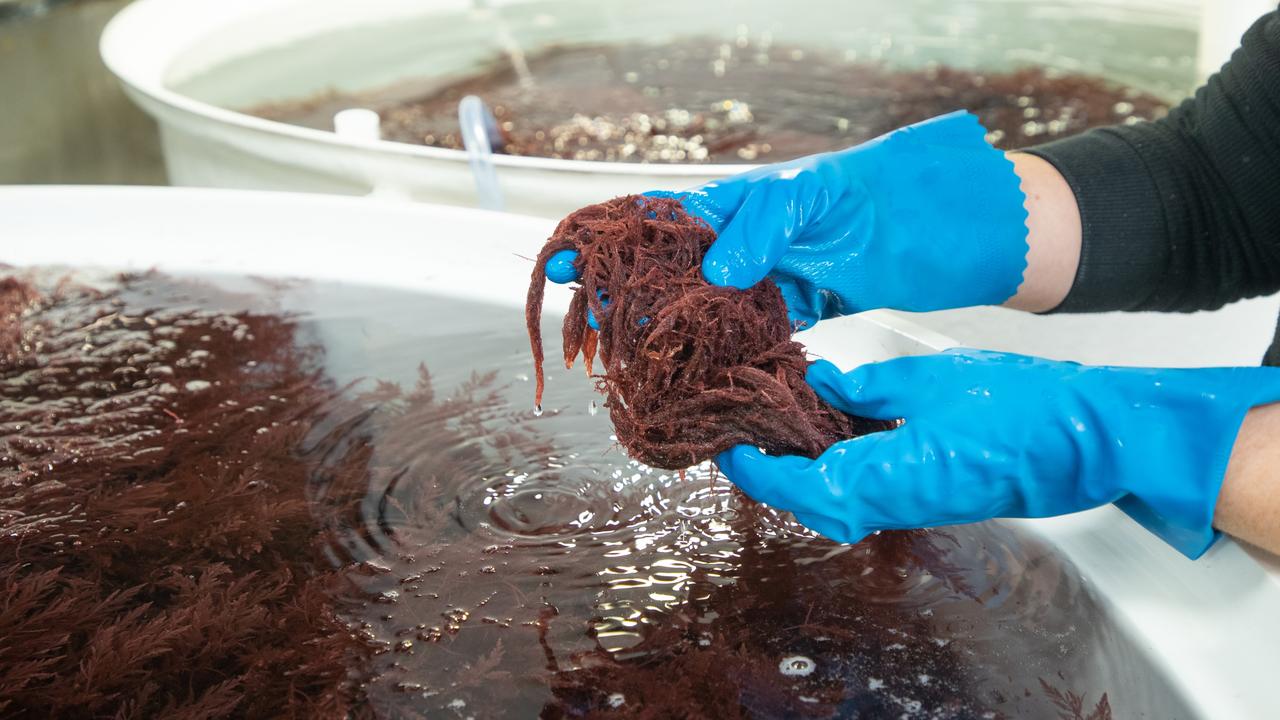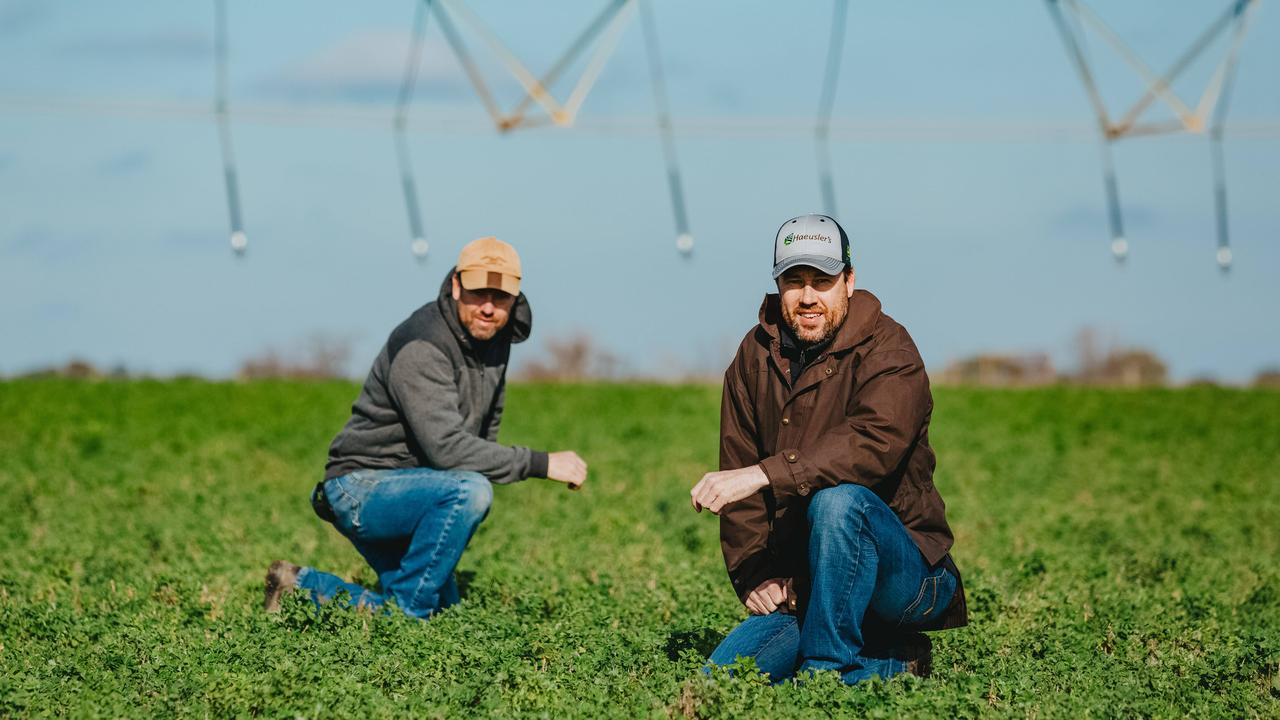Oak and Swan Sourdough: Ancient grains the secret to bread success
A South Gippsland family is resurrecting ancient grains to produce truly local artisan breads.
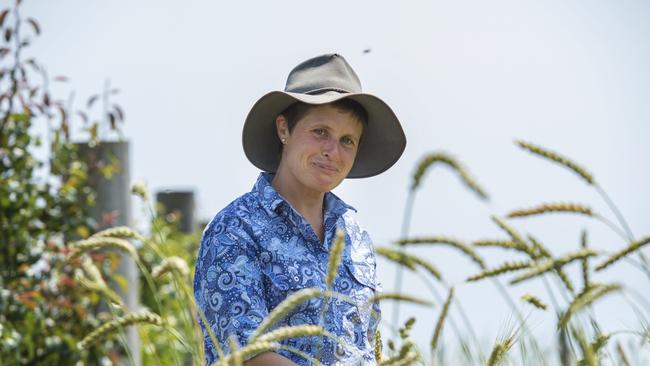
- Farm magazine
is available online as a digital edition
- Why it pays to subscribe to The Weekly Times+
THE lush rolling hills of South Gippsland are synonymous with dairy and vegetables.
Rarely – if ever – will you find crops of wheat; grain commodities more at home in the flat, broadacre paddocks of western Victoria. And it’s rarer still to find rows of wheat in between rows of heritage apples and pears.
But that’s just what Betsy Evans, her husband, Greg, and three children have accomplished on their 40-hectare farm-cum-bakery at Mirboo North.
“When I walk out from home to the bakery (50m away) I pass birch and chestnut trees on one side, and the other side is the orchard of apples and pears, with the rows of wheat in between,” Betsy explains.
“By planting the grain next to the espaliered fruit it means we can net the whole thing as the rosellas love eating the little grain shoots.”
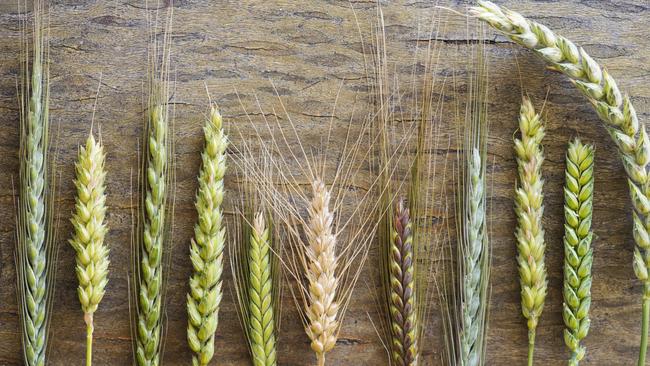
While the quirky apple-wheat combination has inspired such creations as apple scrolls and dried-fruit loaf, the grain plots tell a far more ingenious value-adding tale.
Wanting a farm life for their children, Betsy and Greg moved to the property in 2014, from the outset nutting out a value-add strategy to harness Betsy’s lifelong love of baking, by building a bakery and 40-loaf wood-fired oven.
The Evans also bought a $14,000 Austrian mill, sourcing grain from growers including western Victoria’s Burrum Biodynamics, Tuerong Farm on the Mornington Peninsula, Woodstock Farm at Berrigan, NSW, and Barry Edwards, from Murrayville in Victoria, milled by Greg twice a week, producing about one tonne a month.
Through their business, Oak and Swan Sourdough, Betsy every Friday bakes 300 loaves in 12 varieties, in addition to other treats such as scones, pies, scrolls and danishes, sold at local farmers’ markets, the Prom Coast Food Collective and wholesale to cafes, restaurants and health-food shops.
As their vegetable garden and 60-tree orchard has developed and matured, Betsy occasionally adds kale to scones or silverbeet to savoury pies.
“I also make a lot of preserves and add these to scrolls, like an orange, pumpkin and rosemary marmalade over custard to a hand-rolled, wholewheat pastry,” she says.
“Even though we have a grapevine we’re never going to be self-sufficient and, for instance, grow enough sultanas for the bakery. Ultimately I love to work with other like-minded growers and farmers who care about the environment, soil and end product.”
While they have a flock of 12 sheep, 40 beef cattle and more than 20 chooks and ducks, meat and eggs are for the home kitchen, with Greg, a plumber, overseeing farm work.
Last year, however, the Evans went one better and decided to take a risk and grow their own heritage variety grains to mill for Oak and Swan Sourdough.
“In looking at it from a big-agriculture perspective you’d think no, you couldn’t grow grain in South Gippsland,” the 37-year-old says, adding they have plans to use the biodynamic preparation of 500 or cow manure on the property.
“But if you look at it from a small-farm perspective, especially given grain was always grown in the wet, cold parts of Europe, then it makes sense.
“When I was a baby my dad even grew a crop of wheat in (nearby) Dumbalk to feed to the chooks.
“It can be done, it just has to be the right variety. Modern wheat won’t grow here because it’s been designed for big, flat, hot, monoculture areas.”
GROUND UP
BETSY at first consulted with farmers and artisan bakers who were experimenting with heritage wheat breeds, including Small World Bakery in South Australia and Trentham’s renowned RedBeard Historic Bakery, as well as Tuerong Farm’s Jason Cotter.
Then she contacted the Australian Grains Genebank in Horsham and was given a handful each of 50 varieties.
“The aim is to find varieties that will thrive here, taste really good, mill nicely and are easy to harvest and clean.”
In April and May last year, Betsy planted trial plots of three 12m rows, ensuring the soil was well weeded, also adding rock dust as fertiliser. Aside from rosellas, there have been no pest or disease problems, although she says she’ll heavily mulch the soil to ensure less weeds in the next crop. So far the spelt, Khorasan and French varieties are doing well.
“I chose a couple of varieties from Queensland and northern NSW because we’ve had hot, dry summers and autumns here lately but, 2019’s winter and spring was wet, so they didn’t work as well.
“Some of the UK varieties have done well because of the wet and cold.”
It will be a few years until the couple can grow enough to mill and therefore taste the bread. Once they have finetuned the right varieties and grown enough to reach commercial quantities – they estimate in five years – grain will be planted out across four hectares.
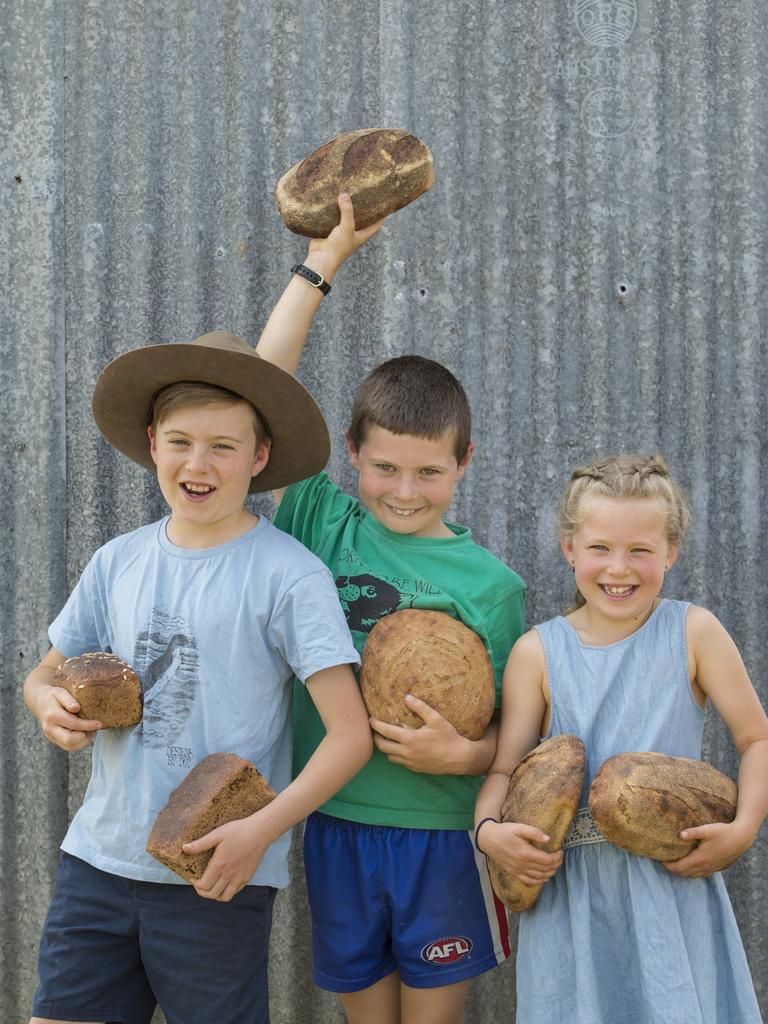
By that time, Betsy hopes to have a co-owned source of equipment for planting, harvesting and husk cleaning.
“I think we can find enough grain growers here to do that, because others are showing interest. Co-owning equipment would be the only option, given the cost,” she says.
“I’ve spoken to farmers who have pedal-powered hulling machines and modified whipper snippers, but we’ll need to go a step beyond that.”
Until then, grain will be harvested and husks removed by hand. It’s a big side project given Betsy – who was a harness-racing jockey in her early career – already has her hands full, with her sister helping in the bakery this year.
Using wood from pine trees on the farm (they are replanting 5000 native trees), the couple fire their brick oven on Thursdays, before it reaches peak temperature of about 330C and ashes are cleaned out.
Betsy bakes each Friday from 4am to 11pm, as well as Saturday morning, recovering Sunday, with the residual heat of the oven used to make other products such as muesli and crackers through to Tuesday.
She says she has been a dedicated self-taught bread baker since the age of 12 and has learnt more through workshops.
“There’s been a lot of hard work in this but also a lot of reward because I believe in what we do and I’m passionate about it,” she says.
The hardest work may yet come, with the grain production.
“From the moment I saw wheat growing in a field I was hooked. It’s beautiful, poetic. I can go into my plots and spend an hour looking at them, the way the heads of wheat wave in the wind,” she says.
“Wheat is so old, one of the staples that civilisation is built around. It goes back to our very, very distant past, the earth, the weather. I find it very powerful.”
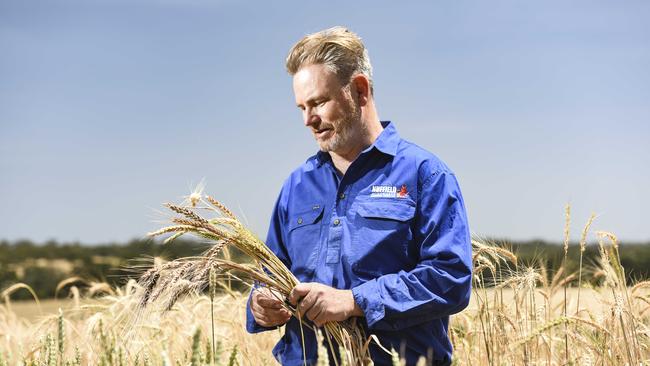
ANCIENT REVIVAL
CONSUMER demand for local, seasonal and low-emission foods has seen the rise of farmers’ markets, meat box deliveries, and even micro-dairies.
It was only a matter of time before local grain economies developed to supply bakers with flour of a known provenance.
Jason Cotter and Emma Hicks run the 60-hectare Tuerong Farm on the Mornington Peninsula, four years ago expanding to growing 13 hectares of heritage, ancient and modern grains.
“I read The Third Plate by Dan Barber about the future of food and how production is centralised and there’s no connection between the producer and consumer,” Jason recalls.
“So on the back of that I decided to grow grain. Now it’s a global movement, but in Australia we are at the forefront.”
Jason grows 200 varieties of grains, such as red wheat, spelt, emmer and Khorasan.
He harvests about 80 tonnes of grain a year, most of which he mills into flour with a stonemill he bought from China, and sells to bakeries, restaurants and home cooks across Melbourne (and Betsy).
Jason – who this year will travel the world on a Nuffield scholarship examining flavour and nutrition in grain production – predicts the trend for local grain is just starting. Given high consumer demand he has recently begun working with another peninsula grower to meet supply.
Even though he grows in the cool Mornington Peninsula, he says heritage wheat varieties are not difficult to grow and even better suited to low input, sustainable farming practices.
“Some of them yield really well and have better weed suppression than modern varieties,” he says. “Plus there are heaps of benefits around gut health, more flavour and nutrition.”
FARM FILE: Oak and Swan Sourdough
Betsy and Greg Evans are planting trial plots of 50 heritage wheat varieties on their 40-hectare farm at Mirboo North, planning to scale up the most successful and mill flour to supply their artisan bakery business. They produce 300 loaves a week, supplying local markets, shops and restaurants.
Where: Mirboo North
More info: oakandswansourdough.com.au
MORE FARM
PADDOCK TO PINT FOR MITTA MITTA BREWING COMPANY

